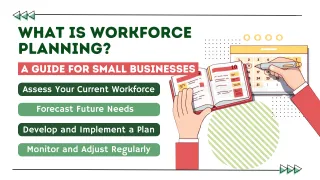
Inclusive Hiring: Empowering Disabled Workers
Explore how inclusive hiring, accessibility, and structured support empower workers with disabilities and create stronger, more innovative workplaces. ...more
Staffing
July 08, 2025•5 min read

How Staffing Trends Are Shaping 2025 Workplaces
Explore the staffing trends shaping workplaces in 2025, including flexible models, remote work, AI-driven recruitment, and Gen Z expectations. Stay ahead with insights on building agile, inclusive tea... ...more
Staffing
April 22, 2025•6 min read

Empowering Your Future: How Women Can Elevate Their Careers and Personal Growth Through New Opportunities
Find out how women can unlock new career opportunities and personal development through strategic approaches such as networking, upskilling, and establishing a strong personal brand. Ready to move for... ...more
Staffing
April 10, 2025•3 min read

The Ultimate Guide to HRM for Startups
Discover the ultimate guide to HRM for startups. Learn key strategies to build a strong team with Deerfield Employment Solutions. ...more
Staffing
April 04, 2025•2 min read

What is Workforce Planning?
Discover what workforce planning is and how it helps businesses align talent with goals. Learn more with Deerfield Employment Solutions. ...more
Staffing
April 04, 2025•3 min read

Why HRM Is the Backbone of Every Successful Company
Discover why HRM is essential for company success. Learn how Deerfield Employment Solutions helps build strong HR foundations for thriving businesses. ...more
Staffing
April 04, 2025•2 min read